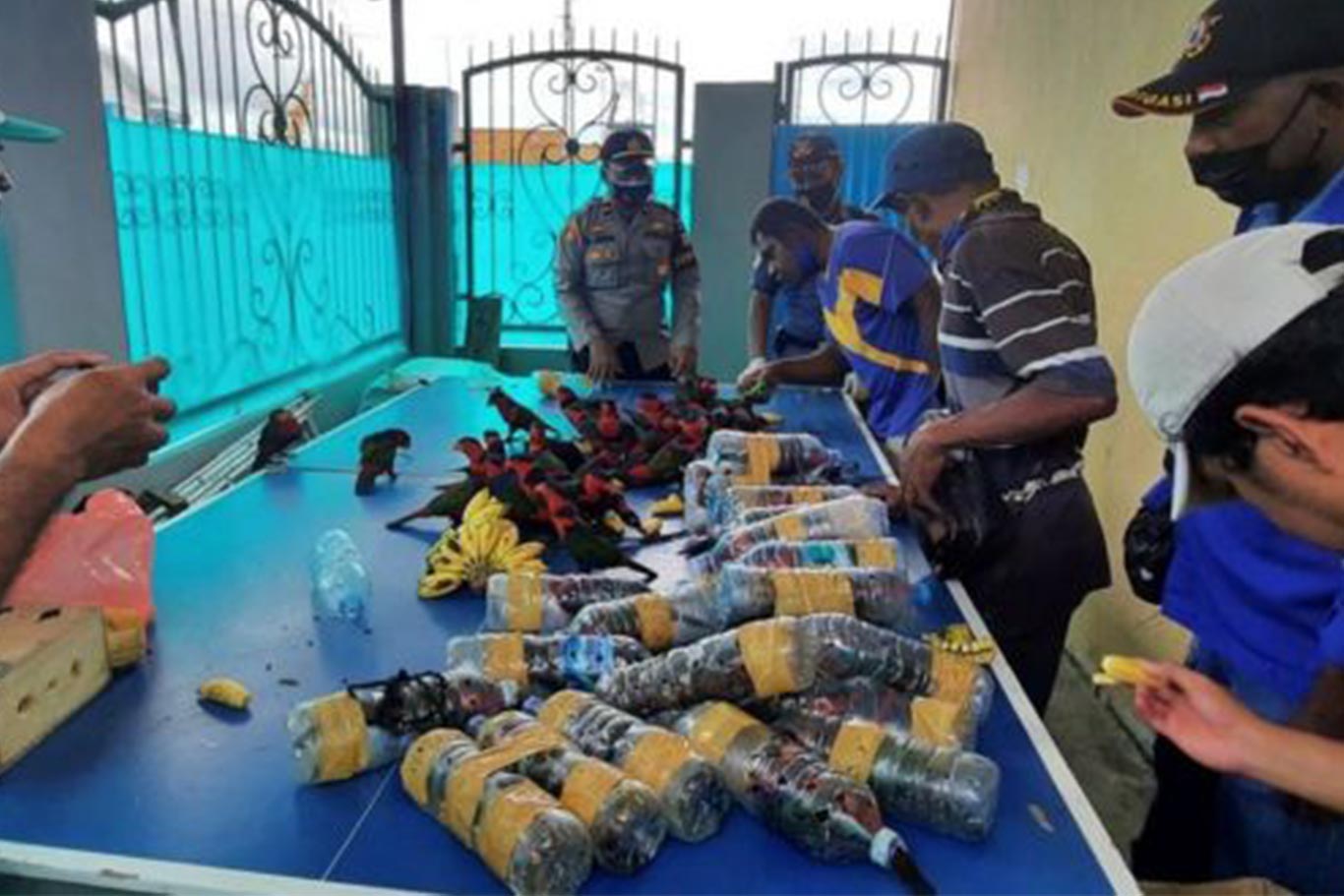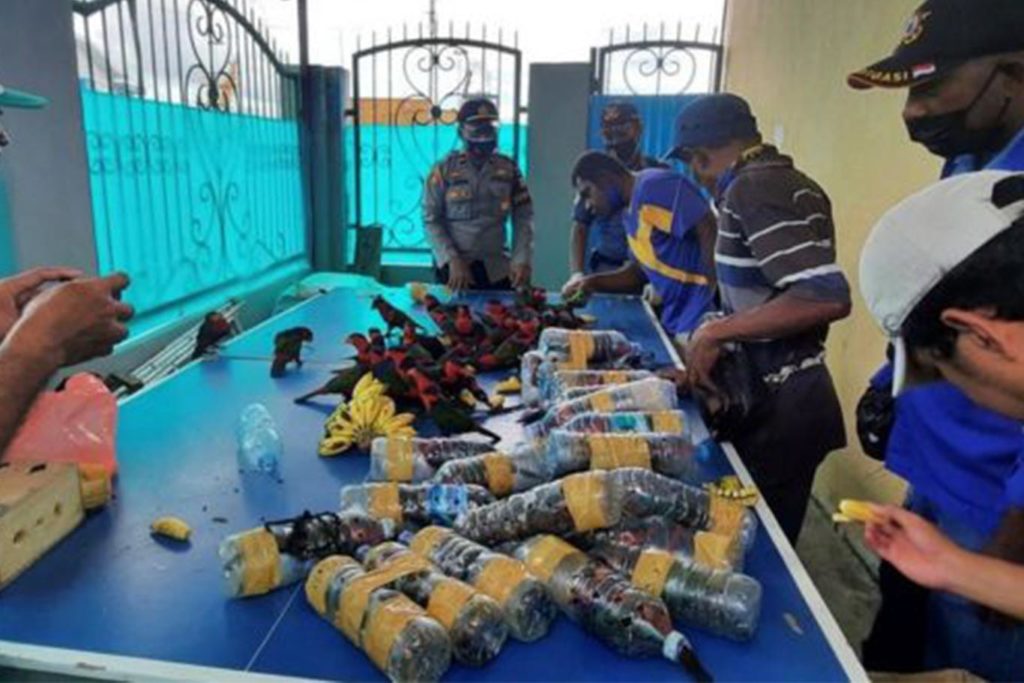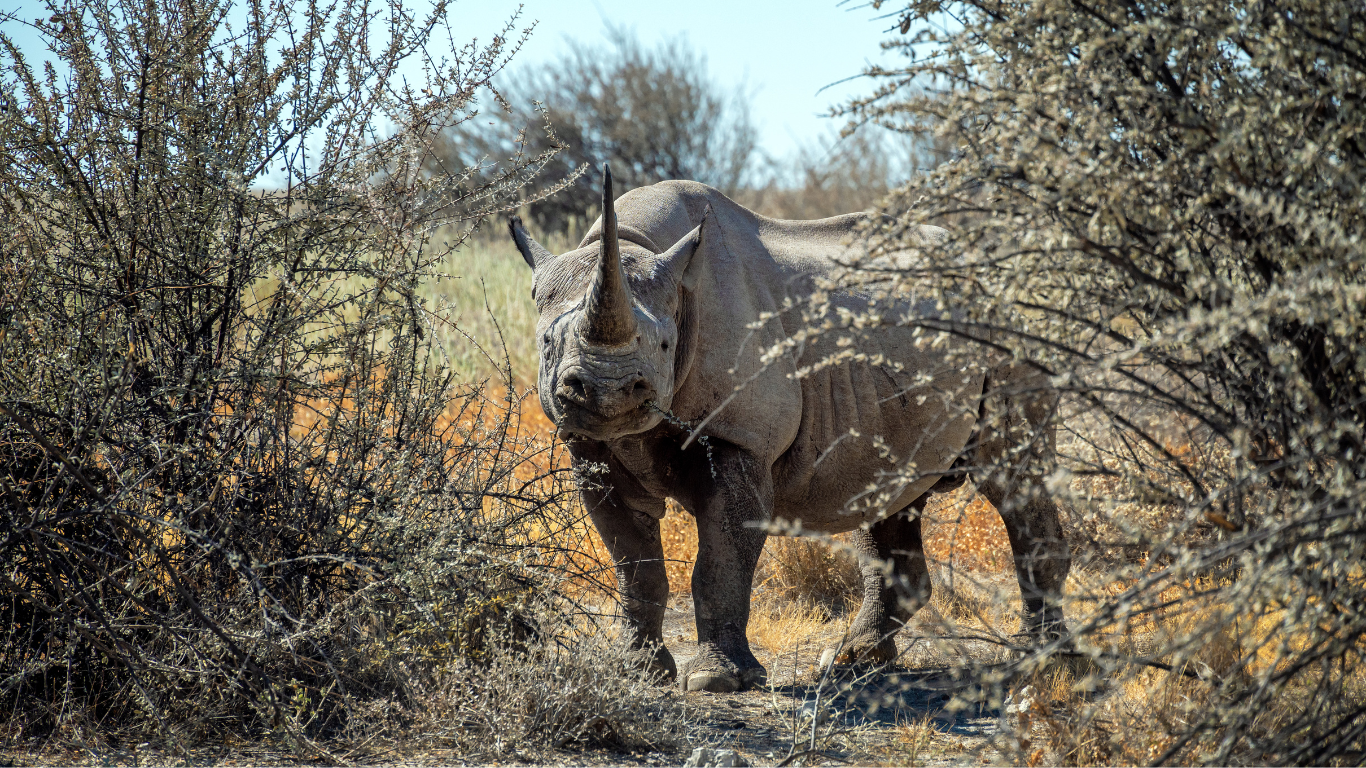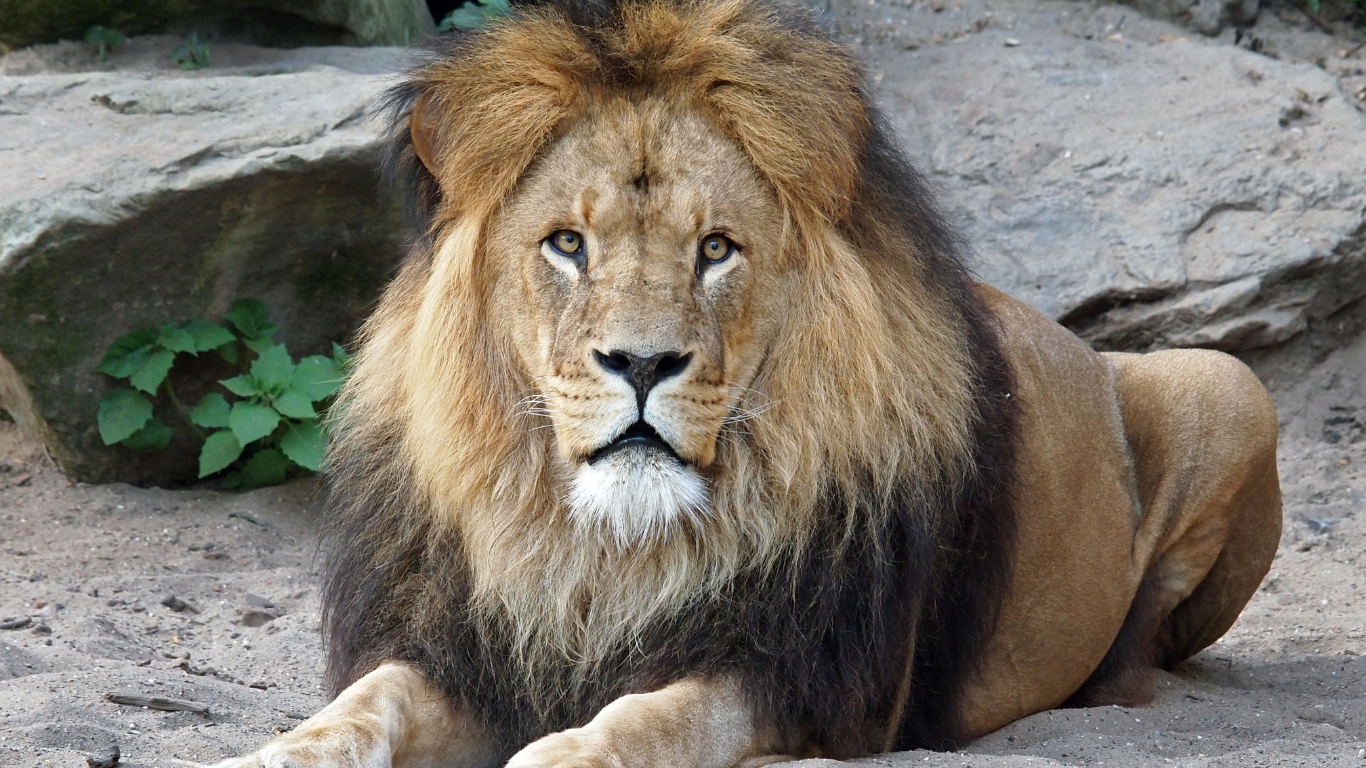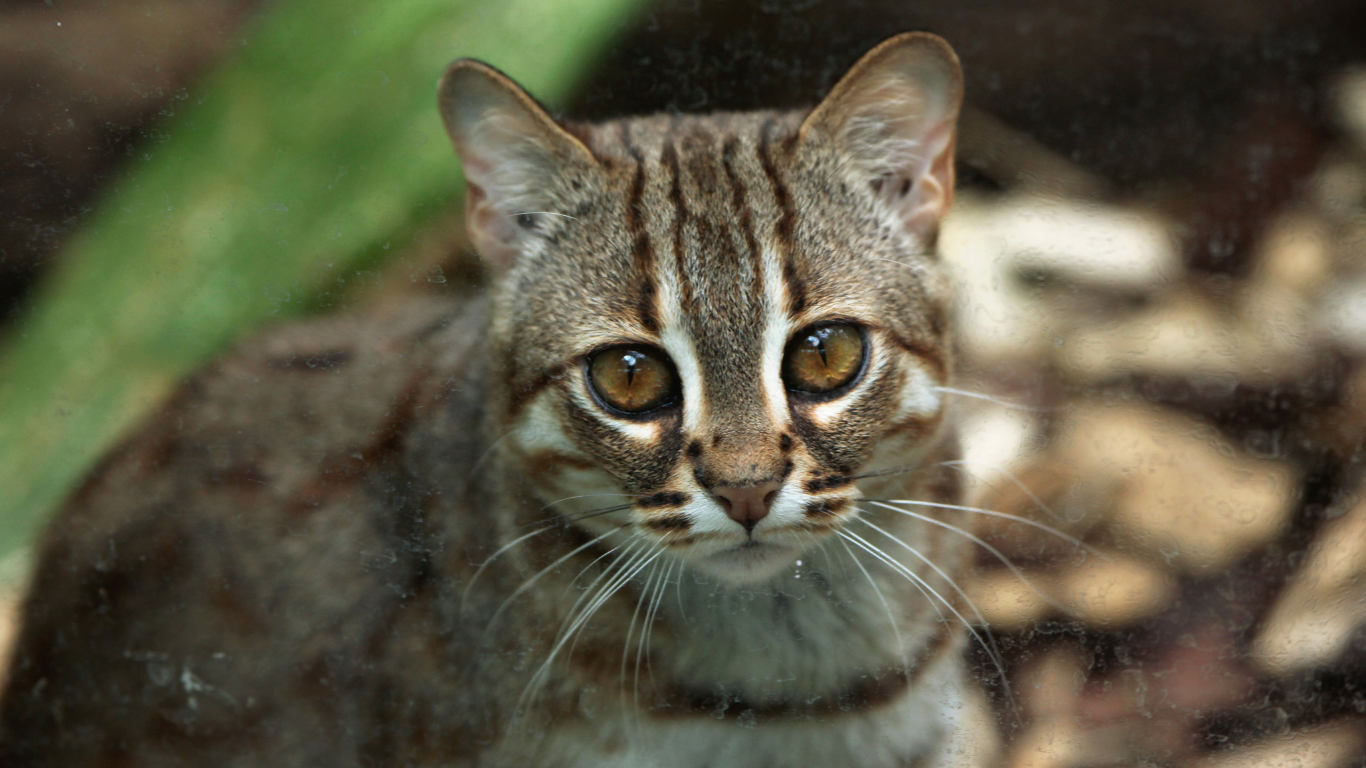Disturbing footage of endangered parrots stuffed in plastic water bottles is proof that the smuggling of endangered birds occurs on an industrial scale with devastating consequences.
Authorities discovered the birds on a ship docked in Indonesia's Papua region. According to police within the town of Fakfak, the vessel's crew reported hearing strange squawks and noises coming from a big box. Inside the box, officers found 64 black-capped lories - weak, dehydrated and clinging to life. Sadly, another ten birds were found deceased.
The destination of the parrots seized during this operation remains unclear, and as yet, no arrests have been made.
With more than 10,000 parrots captured from the wild in Indonesia each year, these lories' downright cruel transportation is just one example of the inhumane methods animal traffickers use to gain their profits.
The forest-dwelling black-capped lory is a colorful parrot native to New Guinea and nearby islands in the southwest Pacific Ocean. Their spectacular bold plumage - black crown contrasting with a blue body and green wings - has rendered them quite popular with parrot enthusiasts.
Black-capped lories are a protected species in Indonesia, but this hasn’t stopped poachers from taking advantage of enforcement loopholes, lack of awareness, and limited public and private sector coordination, and moving these birds through the licit transportation system.
Indonesia's vast jungles are home to over 130 threatened bird species, more than any other country except Brazil. But there is also large-scale illegal trading of birds, which sees them sold across major cities or smuggled across the world for sale as pets and status symbols.
These birds suffer at every step of the journey destined to people's homes: from capture to handling, transport, holding, breeding, sale, and the lifetime of captivity in the home. Every year, hundreds of thousands of wild birds are torn from their natural homes in the wild and captured by poachers.
Nearly 4,000 bird species, involving several million individuals, are victims of the illegal wildlife trade, with finches, weavers, parrots, and raptors being some of the most heavily affected groups. Some of these species have been pushed to the brink of extinction as a result, such as the Yellow-crested Cockatoo of East Timor and Indonesia. Others are already extinct in the wild, such as the Spix's Macaw of Brazil.
“Several investigations have found that around 40 percent of these birds die before they can reach an owner. That means that for every 1,000 parrots caught from the wild, 400 birds died in vain, during the poaching, transportation, and trade, due to poor conditions and cruel handling,” said Nicolette Peters of the Animal Survival International (formerly Political Animal Lobby).
“Those birds that do survive are forced to live the rest of their lives behind bars, confined to small cages. There is no realistic way to replicate the space and freedom these birds would have in the wild. Wildlife trafficking is one of the most prominent forms of international organized crime in the world. Beyond the environmental implications of wildlife trafficking, the illicit trade in live animals presents a potential health risk to other animals and even humans. Birds can reportedly carry over 60 diseases that are transferrable to humans. This cruel trade has to stop.”
Feature image credited to: Getty Images

